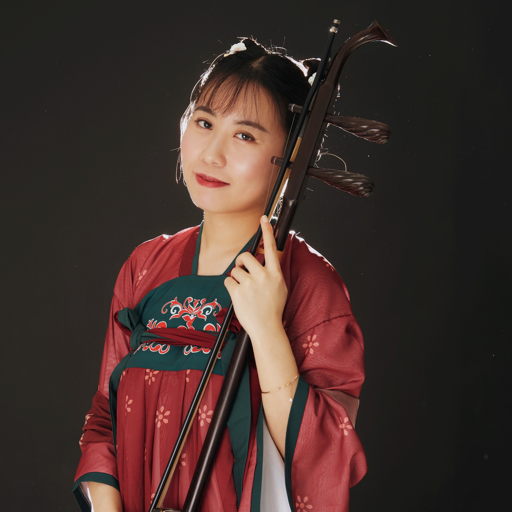String sound erhu
Organized by 花昼 on 2022-09-28

Xianyin Erhu is an Erhu master, professional performer and educator. He has his own channel account at station B and has 11,000 fans. His representative works include "This song is so suitable for erhu, it feels so good" "Under the Sea" Erhu Edition", "Erhu Edition "Sword Like a Dream" Xia Nv Lai Ye Ye ! Don't forget the rivers and lakes! ". Its broadcast volume peaked at 231,000 views.
Similar artist
Xiong Qi, Director of the Instrumental Music Teaching and Research Section of the Conservatory of Music of Changsha University, young backbone teacher of ordinary colleges and universities in Hunan Province, double qualified teacher, and national first-class performer; President of Huqin Professional Committee of Hunan Ethnic Orchestra Association.
read >>
Huo Xiaojun was born in Tianjin and is a national first-class performer. She began to study erhu at the age of 8. Due to her outstanding performance, she successfully entered the China Opera and Dance Theatre after graduating from university. In 2001, she was invited to join the "Twelve Girls Band" and became "the only member of the group who did not sign a contract". .
read >>
Lu Yiwen, a Chinese erhu player, a young erhu teacher at the Shanghai Conservatory of Music, a director of the Erhu Society of the Chinese National Orchestra Society, and the winner of the Golden Bell Award, the highest award of Chinese music, and the Wenhua Award.
read >>
Qi Jianda, male, born in 1954. Jiangsu Nanjing native, Han nationality, erhu performer, educator, national first-class actor.
read >>
Zhao Yuanchun, a well-known young erhu performer, a young teacher of the folk music department of Tianjin Conservatory of Music, the first doctorate in folk instrumental performance from the Central Conservatory of Music.
read >>
Involving musical instruments
Erhu (Pinyin: Erhu) originated in the Tang Dynasty, called "Xiqin", and has a history of more than a thousand years. It is a traditional Chinese stringed instrument. Erhu, or Erxian Huqin, also known as "Nanhu" and "Omzi", is one of the main bowed and stringed instruments (wiping strings) in the Chinese national musical instrument family.
Involved portfolio
华夫饼 - 161 views
愛 - 125 views
关谷奇迹 - 144 views
南丘 - 66 views
赵锦辛 - 79 views
Involved news
Organized by 汤圆 on 2025-04-10
In the treasure house of traditional Chinese music, the erhu has secured a place with its unique timbre and rich expressiveness. When the classic folk song "Dear Guest, Please Stay" meets the erhu, a distinctive artistic charm is created.
read >>
Organized by 苏肆 on 2025-03-11
In the brilliant galaxy of erhu art, "Moon Tooth Five Watches" shines like a pearl, captivating countless listeners with its unique charm and profound artistic conception. This piece is not a traditional "Five Watches Tune", but rather a solo erhu composition created by Mr. Liu Mingyuan, who drew inspiration from the Northeastern folk song "Moon Tooth Five Watches" and incorporated elements of opera music.
read >>
Organized by 尼禄 on 2025-02-27
In the 1970s, Mr. Liu Changfu, a master of the erhu, created a piece of music with a Mongolian flavor, "New Herdsmen on the Grassland", through his unique artistic perspective and profound cultural background. This composition not only depicts the magnificent scenery of the Inner Mongolia grassland but also sings the praises of the rich and colorful lives of the younger generation of herdsmen and their optimistic and cheerful spirits.
read >>
Organized by 象牙山首富 on 2025-02-14
"Early Spring in Miao Mountain" is a vibrant and dynamic erhu masterpiece that vividly portrays the life scenes and natural landscapes of the Miao people in southwestern China through its unique musical language. This piece not only showcases the rich expressiveness of the erhu, a traditional Chinese instrument, but also conveys the breath of spring and the rhythm of life through its notes.
read >>
Organized by 夜夜 on 2025-01-02
As an indispensable member of Chinese folk music, Erhu is deeply loved by musicians for its unique timbre and expressive force. However, because its structural materials are mainly natural materials such as wood and python skin, it is more sensitive to environmental changes, especially in the winter when the temperature drops sharply and the air is dry.
read >>
Popular artists
- 01 Zhang Xiuyan
- 02 King Hammer
- 03 Zhang Qianyuan
- 04 Chen Tao
- 05 Deng Jiandong
 渝公网安备 50010702504639号
渝公网安备 50010702504639号